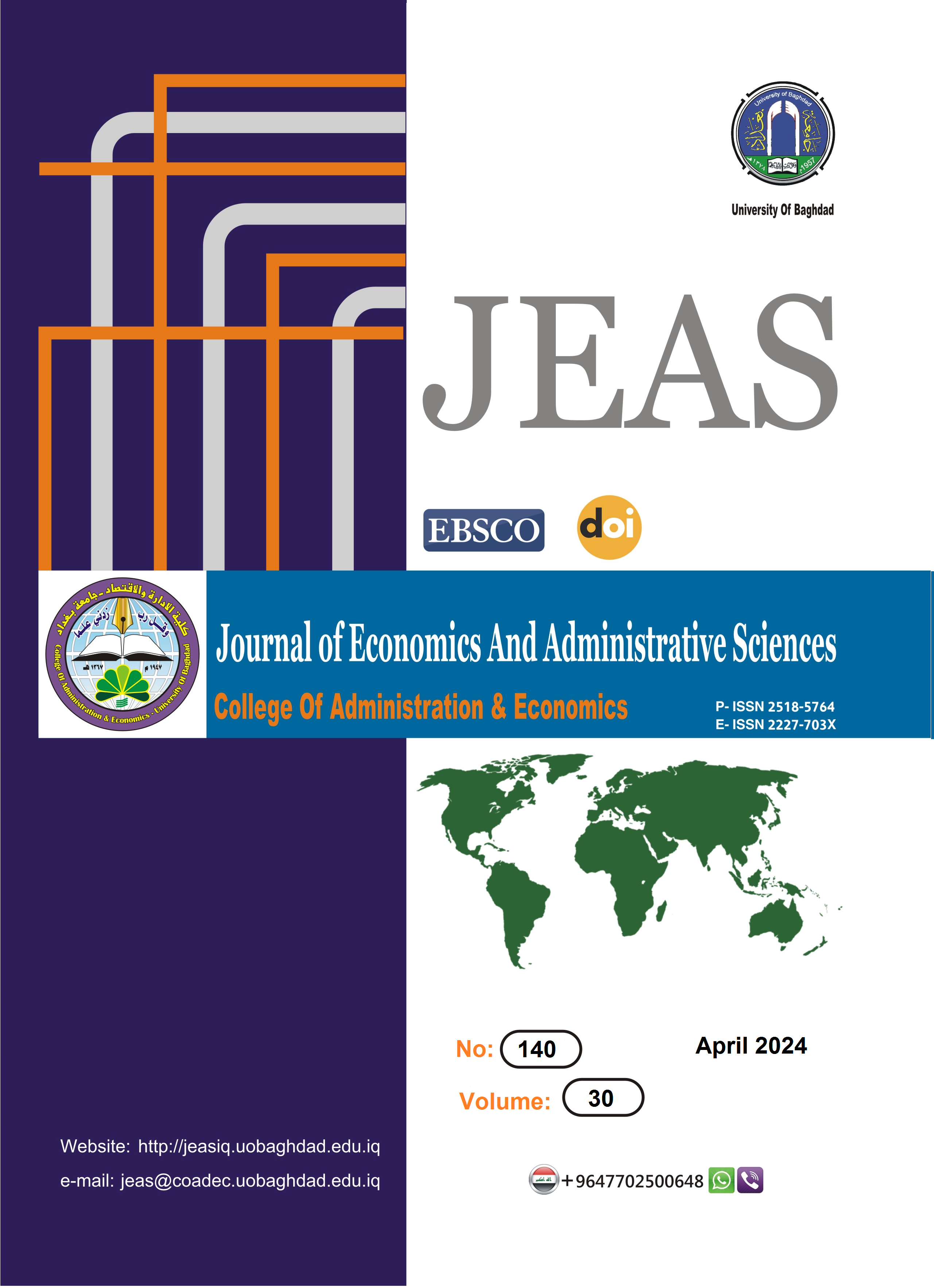The Effect of Empowering Leadership on Creative Performance: An Analytical Research in Diyala General Company
DOI:
https://doi.org/10.33095/s8s9y414Keywords:
Empowering leadership, Creative performance.Abstract
This research aims to explore the impact of multifaceted empowering leadership (power and responsibility delegation, autonomous decision-making, knowledge sharing, skill development, and innovative performance training) as an independent variable in achieving multi-dimensional creative performance (authenticity, fluency, flexibility, self-efficacy) as a dependent variable. The research also aims to enhance the quality of empowering leadership among a sample of 117 leaders in Diyala Public Company through effective modern leadership styles. The research specifically focuses on the importance of creative performance in this sample. Data was collected using a questionnaire as the main tool and statistical methods such as standard deviation, Sobel test, Pearson correlation coefficient, and software such as SPSS and Excel. The results showed a significant positive and direct relationship between empowering leadership and creative performance in general. The research concluded that empowering managers in Diyala Public Company with the authority to make necessary changes is an important step to improve overall work processes. This empowering helped managers effectively adapt to challenges and increase efficiency in responding to changing market demands. By empowering managers to improve processes, the company succeeded in promoting innovation and increasing productivity, ultimately enhancing its position in the market and achieving sustainable and clear success.
Research type: Research paper
Downloads
Published
Issue
Section
License
Copyright (c) 2024 Journal of Economics and Administrative Sciences

This work is licensed under a Creative Commons Attribution-NonCommercial-NoDerivatives 4.0 International License.
Articles submitted to the journal should not have been published before in their current or substantially similar form or be under consideration for publication with another journal. Please see JEAS originality guidelines for details. Use this in conjunction with the points below about references, before submission i.e. always attribute clearly using either indented text or quote marks as well as making use of the preferred Harvard style of formatting. Authors submitting articles for publication warrant that the work is not an infringement of any existing copyright and will indemnify the publisher against any breach of such warranty. For ease of dissemination and to ensure proper policing of use, papers and contributions become the legal copyright of the publisher unless otherwise agreed.
The editor may make use of Turtitin software for checking the originality of submissions received.

























